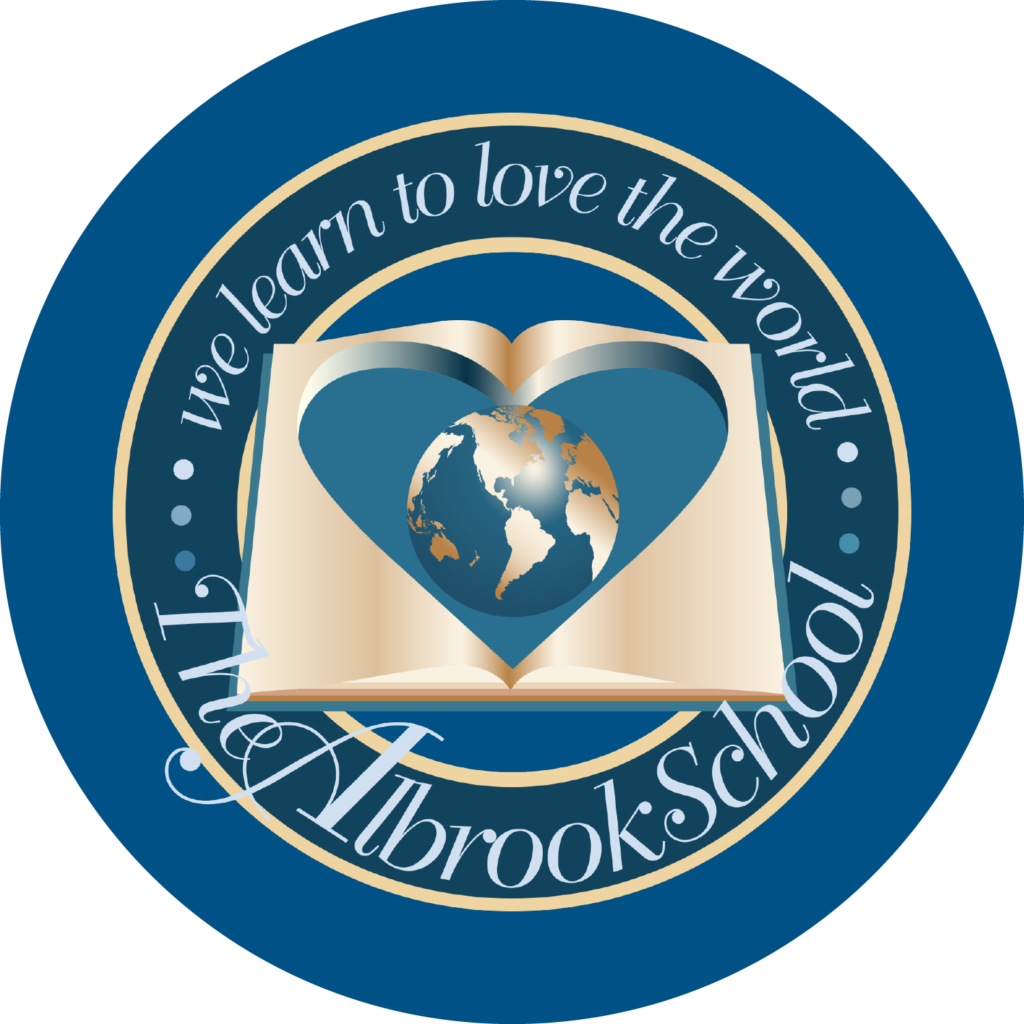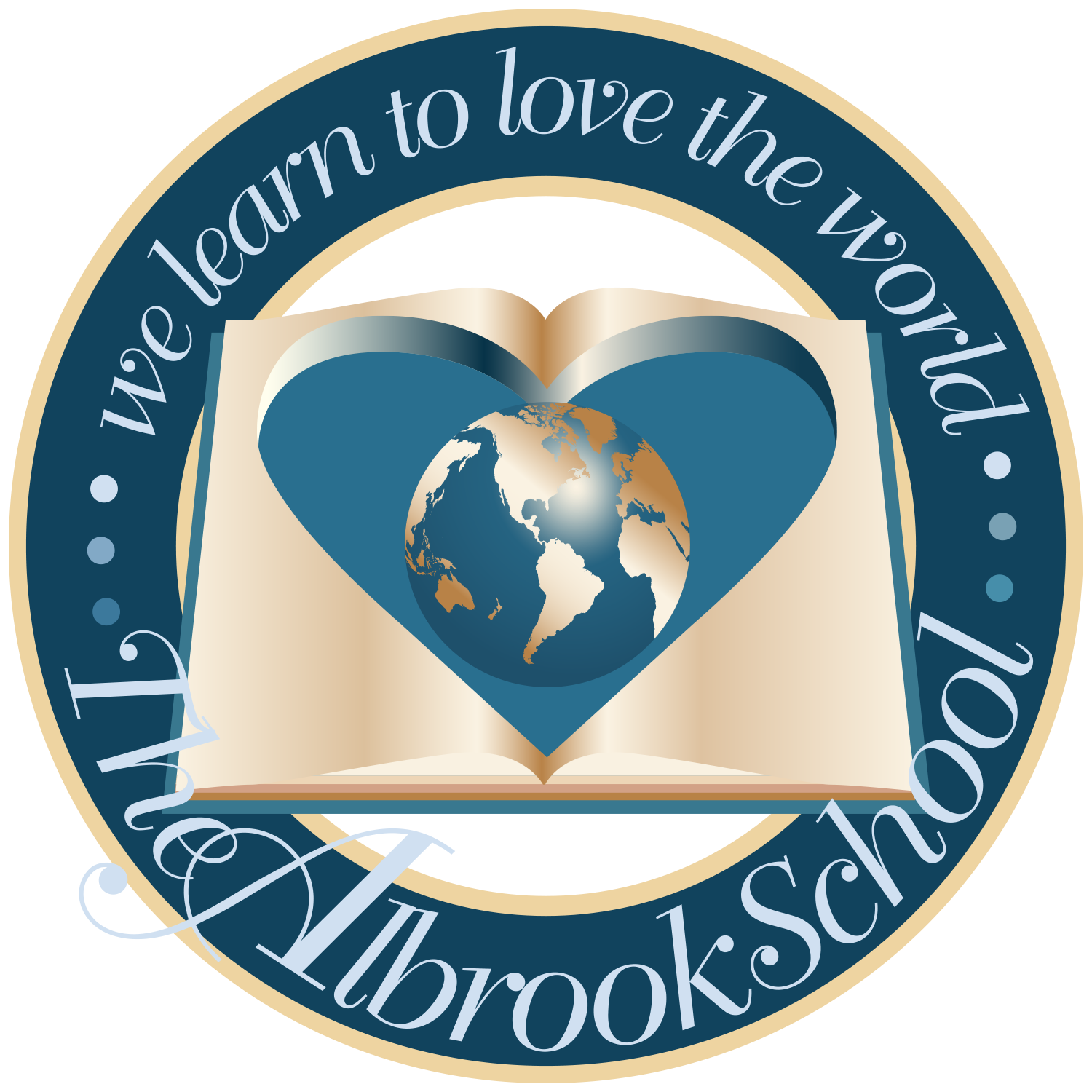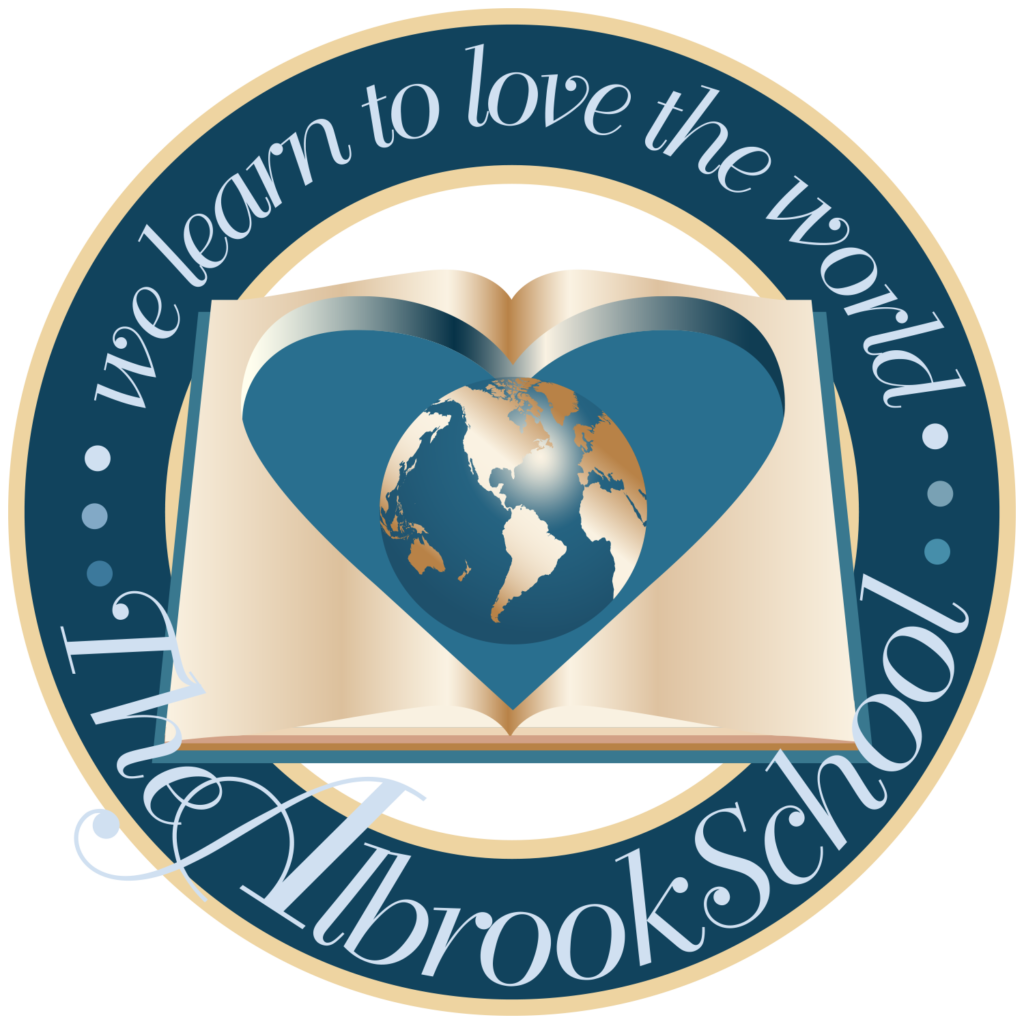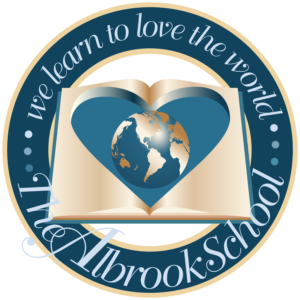The Arts
The Albrook School fosters a love and appreciation of the arts through its music, performing arts and creative arts programs. Beginning with the very young child and continuing through the Elementary program at Albrook, the children are exposed to a wide variety of artistic experiences. The process of creating is the focus of our fine arts program.
Music
Students meet in small groups for music class. Based on Orff philosophy, music is created as a group using mallet instruments (glockenspiels, xylophones, metallophones), percussion and voices.
Rhythm, pitch, and musical form are all elements that are explored in lower elementary music classes. Beginning in third grade, students learn to play recorder and use musical notation.
Upper Elementary students have the opportunities to expand their experience with alto recorder, ukulele, and more advanced mallet instruments. Emphasis is placed on listening and performing together as a group. Performing recorder consort music is a goal when students are able to use different size recorders in an ensemble.
During the season of the annual school musical, music classes collaborate with drama. All elementary students have songs to learn, while the upper elementary students prepare for performance solos.
Art
The Albrook School offers an extensive art program for Elementary students. In Art History children learn to recognize art movements and their most representative artists. Through Art they have the opportunity to develop their creative skills by exploring different media such as acrylic painting, oil pastels, printing making and many more. Our students are provided with the foundation of visual Arts by the study of its basic elements and the use of them. Art is an essential subject where we foster individual creativity and criticism with acceptance and respect towards others.
Drama
The Albrook School appreciates the value of drama for young students and offers a robust program, unique in the elementary years.
All students receive weekly instruction in drama throughout the year and perform in a full-scale musical theater production on our Albrook stage. Our facility features a projector for digital backdrops and a light and sound board, giving the production a very professional feel. Through the process of working on the play, children gain confidence and experience collaborating with others while learning every aspect of the theater. In preparing for the annual play, students memorize lines, songs, and choreography, help with the creation of props and scenery, and are instructed in the technical elements of the theater such as lighting and sound. The final production is always a great event for the whole school community.
In addition to the annual play, elementary students also have the opportunity to work with a Montessori-trained drama teacher on special projects related to the curriculum. These projects use drama as a means to enhance academic lessons on topics ranging from math and language to the cultural curriculum. Through these projects, students gain experience in research, writing, creative movement, storytelling, critical thinking, and public speaking. Presentations of this work occur throughout the school year.
Pre-K students enjoy a weekly drama class. The drama program for this age begins with identifying and expressing emotions. Children then use these emotions during interactive storytelling lessons. Students are encouraged to think creatively as they learn theatrical techniques such as pantomime and facial and vocal expression.
The kindergarten drama program begins to examine the theater through the lens of the actor’s three tools: the body, the voice, and the imagination. During a weekly drama class, children participate in activities that help develop acting skills and encourage creativity. Kindergarteners have the opportunity to demonstrate these skills during the annual kindergarten play presented at the end of the year. During the play, each child sings, dances, and has individual lines to recite in front of an audience.
There are two parts to the drama program in the elementary years: the annual school play and an integrated curriculum-based drama program.
Each year Elementary students perform in a full-scale musical theater production on the Albrook stage. Through this process, children gain confidence and experience working collaboratively with others while learning every aspect of the theater. In preparing for the annual play, students memorize lines, songs, and choreography, help with the creation of props and scenery, and are instructed in the technical elements of the theater such as lighting and sound. In keeping with Montessori philosophy for this age, children are given a full experience that includes not only the rehearsal process, but also places the play within a larger context. Lessons are given in theater history as well as topics related to a particular show. The final production is always a great event for the whole school community.
In addition to the annual play, elementary students also work with a Montessori-trained drama teacher on special projects related to the curriculum. These projects use drama as a means to enhance academic lessons on topics ranging from math and language to the cultural curriculum. Through these projects, students gain experience in research, writing, creative movement, storytelling, critical thinking, and public speaking. Presentations of this work occur throughout the school year.
Spanish
We encourage our children to enjoy learning the Spanish language by developing curiosity about a new culture and a desire to investigate and explore the world. Our program is designed according to the Montessori philosophy; groups aged 3-6, 6-9 and 9-12 years of age.
Technology is also part of the curriculum through assignments in Google Classroom and Duolingo for Lower and Upper Elementary. Each student has a Chromebook with their own personal account.
The curriculum focuses on new vocabulary and expressions based on simple communication skills such as colors, numbers, parts of the body, animals, family, house, school, days of the week, months of the year , feelings and emotions, manners and food. Oral language is reinforced through games and role-playing. Songs and games are part of each monthly topic. Videos such as Muzzy, Level I and II, Profesor Perico and Goldilocks and the Three Bears are studied throughout the year to reach an increased comprehension level.
The curriculum is more extensive and emphasizes the use of the Spanish grammar and verb tenses in Present Indefinite, Present Continuous and Future Indefinite. The use of feminine and masculine adjectives and interrogative words are reviewed.
The book club program is an independent reading skill. The mini-series”Nuevos Destinos” by the Annenberg/CPB Collection is introduced according to the class level.
This curriculum is specifically based on the use of regular and irregular verbs, ending in ar, er, and ir. Students are introduced to the Past Indefinite and TPR exercises. Students complete cultural research of different topics, such as Bull in Pamplona, La Tomatina, Dia de los Muertos and artists such as Frida Kahlo, Pablo Picasso and Salvador Dali. The students also have the opportunity to learn a simple version of Don Quijote de la Mancha by Cervantes and Watership Down.
Technology
The Albrook School uses technology to enhance learning opportunities, preparing students to be 21st-century learners. Each Kindergarten through sixth-grade student is provided with a Chromebook to advance their learning experience. Our students utilize technology within their weekly computer sessions and in their classroom on a daily basis. Students experience a multimedia computer lab within the Pre-K2, Kindergarten, and Elementary Programs. The elementary classrooms host smartboards for teacher and student-led presentations. Developmentally age-appropriate instruction is presented within the Google Classroom Suite, focusing on computer literacy, word processing, graphing, and correspondence with others. Curricular areas of study are integrated into the computer lab to support individual classroom instruction. Albrook’s technology program allows students to develop critical thinking skills and prepares them for technological opportunities in the future. A priority is placed on cultivating Digital Citizenship for all students; students learning how to be safe, responsible computer users.
The Pre-K2 students use iPads and computers during weekly computer sessions. The students experience an age-appropriate lesson in technology while focusing on developing a solid foundation in math, phonics, and reading skills.
The Kindergarten students are provided with a Chromebook to enhance their learning experience. Our students explore using technology within their weekly computer sessions and in their classroom. Class instruction enables the child to understand the appropriate way to handle a laptop along with how to use the touchpad and keyboard. The students experience age-appropriate lessons in Google Classroom with a focus on how to navigate Google Classroom, Docs, and Draw. Computer vocabulary is also integrated into each class lesson. The last few minutes of class end in an age-appropriate games reinforcing math, language, or practical life skills.
Students utilize a Chromebook to advance their learning. Developmentally appropriate, engaging instruction is presented in Google Classroom, focusing on computer literacy in Google Docs, Slides, Meet, and Draw. The Computer Lab hosts a smartboard for teacher and student-led interactive presentations. Students develop typing skills during lessons and have an opportunity to utilize their Chromebooks with creative projects in both classroom and computer lab. Curricular areas of study are integrated into the computer lab to support individual classroom instruction. Students hone their critical thinking skills by solving algorithms and puzzles with block coding, in code.org, Tynker and Wonder workshop.
Upper elementary students are provided with a Chromebook to advance their learning. Students utilize Google Classroom with a focus on computer literacy in Google Docs and Sheets, having ample opportunities to strengthen their word processing, report, and communication skills. Google Slides, Draw, Meet, iMovie’s, Graphic Design in Photoshop Elements, and Coding are incorporated into students’ learning experiences. Students enjoy being introduced to robotics with engineered fun, age-appropriate hands-on learning in order to make creative problem-solving visually concrete and tangible. Curricular areas of study are also integrated into the computer lab to support individual classroom instruction.
Physical Education
Physical Education is “education through the physical.” It aims to develop students’ physical competence and knowledge of movement and safety, and their ability to use these to perform in a wide range of activities associated with the development of an active and healthy lifestyle. It also helps to develop students’ confidence and basic skills, especially those of collaboration, communication, creativity, and critical thinking. These, together with the nurturing of positive values and attitudes in PE, provide a good foundation for students’ lifelong learning.
The Albrook School provides instruction in a wide variety of sports and recreation from the Preschool child through Elementary. We assist the children in learning and improving skills, such as running, catching, throwing, and striking which are applicable to sports such as baseball. In addition, the Elementary PE curriculum contains swimming. We create a safe and fun environment where all students participate in activities.
It is important to note; the Albrook Physical Education Standards coincide with the State of NJ recommendation for a program that emphasizes the health and wellness of all students.
Community Outreach
A sense of compassion and an awareness of the needs of others in the community are nurtured at Albrook. The children participate in personalized giving programs throughout the year. They make contributions to local and international charities.
